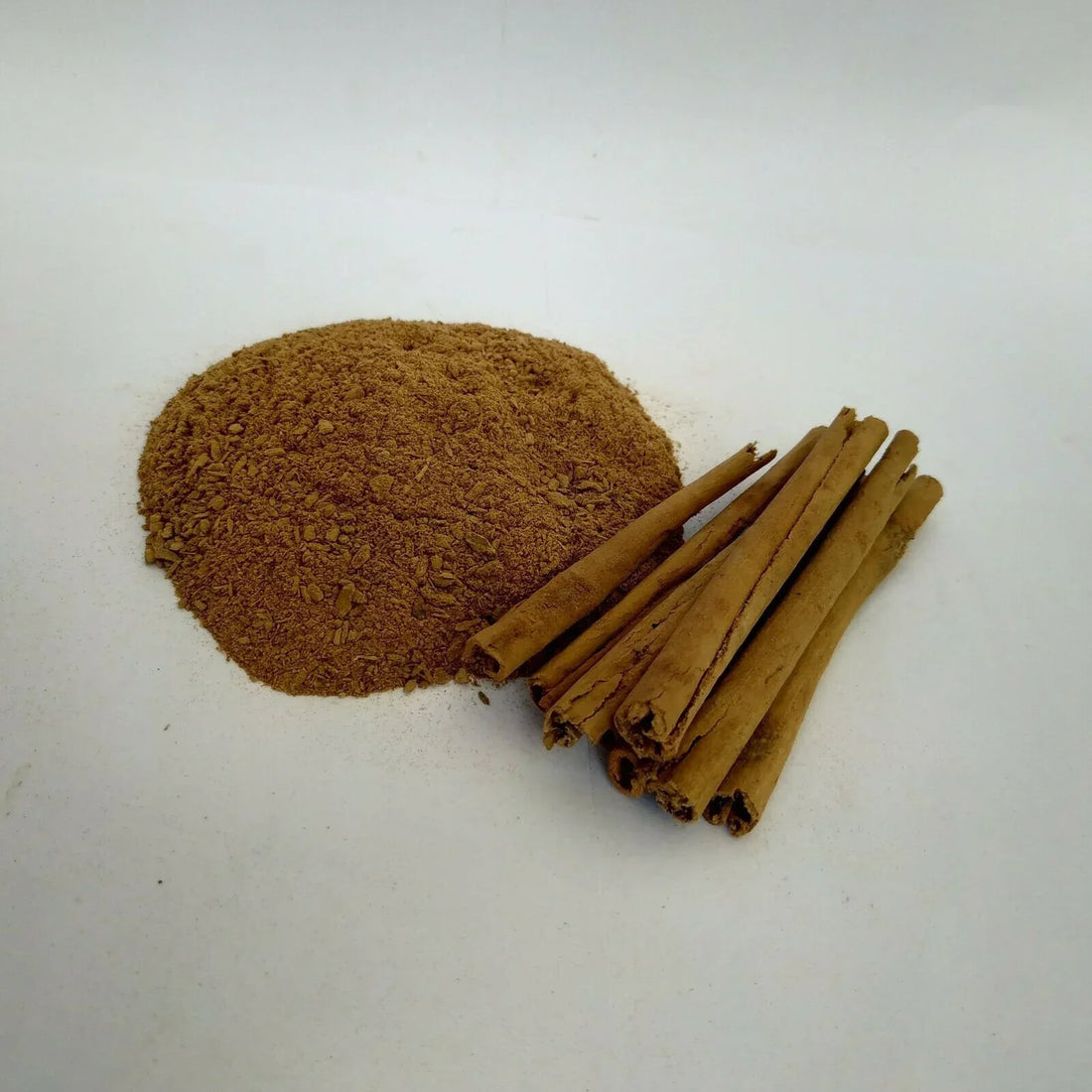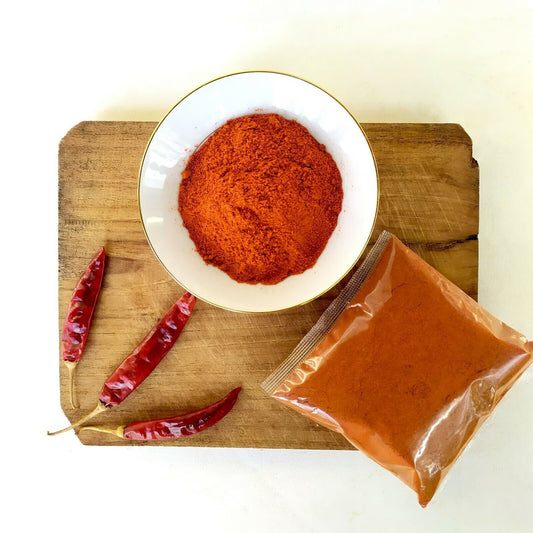
Health Benefits of Ceylon Cinnamon vs Cassia
Health Benefits of Ceylon Cinnamon vs Cassia: The Ultimate Guide
Table of Contents
- What's the Difference Between Ceylon and Cassia Cinnamon?
- Health Benefits of Ceylon Cinnamon
- Health Benefits of Cassia Cinnamon
- Safety Concerns: The Coumarin Factor
- Nutritional Comparison Table
- Blood Sugar Management Benefits
- Anti-Inflammatory Properties
- Heart Health Benefits
- How to Choose the Right Cinnamon
- Dosage Recommendations
- Frequently Asked Questions
What's the Difference Between Ceylon and Cassia Cinnamon?
Ceylon cinnamon (Cinnamomum verum), often called "true cinnamon," originates from Sri Lanka and is considered the premium variety. Ceylon Spice Garden specializes in authentic Ceylon cinnamon sourced directly from Sri Lankan plantations.
Cassia cinnamon (Cinnamomum cassia), commonly found in supermarkets, comes primarily from China and Indonesia. According to the National Center for Biotechnology Information, these varieties differ significantly in their chemical composition and health implications.
Key Visual Differences:
- Ceylon cinnamon: Light brown, thin bark that rolls into multiple layers
- Cassia cinnamon: Dark reddish-brown, thick bark that forms a single roll
- Texture: Ceylon is more fragile and crumbly; Cassia is harder and denser
- Flavor: Ceylon is sweeter and more delicate; Cassia is stronger and spicier
Health Benefits of Ceylon Cinnamon
Research published in the Journal of Traditional and Complementary Medicine highlights Ceylon cinnamon's superior safety profile and therapeutic benefits:
1. Superior Antioxidant Activity
Ceylon cinnamon contains higher levels of antioxidants, particularly proanthocyanidins, which help combat oxidative stress and reduce inflammation throughout the body.
2. Liver-Safe Daily Use
Unlike Cassia, Ceylon cinnamon contains negligible amounts of coumarin (0.004%), making it safe for regular consumption without liver toxicity concerns.
3. Enhanced Blood Sugar Control
Studies from American Diabetes Association research suggest Ceylon cinnamon may help improve insulin sensitivity more effectively than Cassia varieties.
Health Benefits of Cassia Cinnamon
Despite safety concerns, Cassia cinnamon does offer certain health benefits when consumed in moderation:
- Antimicrobial properties: Strong antibacterial and antifungal effects
- Blood sugar reduction: May help lower glucose levels in type 2 diabetes
- Anti-inflammatory effects: Can help reduce inflammation markers
- Cholesterol management: May help improve lipid profiles
Safety Concerns: The Coumarin Factor
High coumarin intake from Cassia cinnamon has been linked to:
- Liver damage and hepatotoxicity
- Increased bleeding risk when combined with blood thinners
- Potential kidney damage with long-term use
- Allergic reactions in sensitive individuals
Nutritional Comparison Table
| Attribute | Ceylon Cinnamon | Cassia Cinnamon |
|---|---|---|
| Coumarin Content | 0.004% (Ultra-low) | 2-8% (Very high) |
| Antioxidant Level | Higher ORAC values | Moderate ORAC values |
| Cinnamaldehyde | 50-65% | 80-90% |
| Safe Daily Dose | Up to 6g per day | Maximum 1g per day |
| Price Point | Premium ($15-25/oz) | Budget-friendly ($2-5/oz) |
| Liver Safety | Excellent | Concerning with high doses |
Blood Sugar Management Benefits
Both cinnamon varieties can help with glucose control, but through different mechanisms. Research from Nutrients journal shows:
Ceylon Cinnamon for Diabetes:
- Improves insulin sensitivity without liver stress
- Supports long-term glucose management
- Safe for daily supplementation protocols
- May reduce HbA1c levels over time
Cassia Cinnamon for Diabetes:
- Provides more immediate glucose-lowering effects
- Higher cinnamaldehyde content for stronger impact
- Requires careful dosage monitoring
- Best for short-term interventions
Clinical Evidence:
A 2019 meta-analysis published in the Journal of the Academy of Nutrition and Dietetics found that cinnamon supplementation reduced fasting blood glucose by an average of 24.6 mg/dL in people with type 2 diabetes.
Anti-Inflammatory Properties
Chronic inflammation underlies many health conditions. Both cinnamon varieties offer anti-inflammatory benefits, but Ceylon cinnamon provides a safer long-term option.
Ceylon Cinnamon's Anti-Inflammatory Action:
- Reduces C-reactive protein (CRP) levels
- Inhibits inflammatory cytokines
- Supports joint health and mobility
- May help with inflammatory bowel conditions
Studies from Evidence-Based Complementary Medicine demonstrate that Ceylon cinnamon's polyphenol content contributes to its superior anti-inflammatory profile.
Heart Health Benefits
Cardiovascular health improvements have been documented with both cinnamon types, though Ceylon cinnamon offers additional safety advantages for long-term heart health support.
Cardiovascular Benefits Include:
- Cholesterol reduction: May lower LDL and total cholesterol
- Blood pressure support: Mild antihypertensive effects
- Circulation improvement: Enhanced blood flow and vessel function
- Triglyceride management: May help reduce elevated triglycerides
The American Heart Association notes that while cinnamon shows promise for heart health, more research is needed to establish definitive recommendations.
How to Choose the Right Cinnamon for Your Health Goals
Choose Ceylon Cinnamon If You:
- Want to use cinnamon daily for health benefits
- Have liver sensitivities or take medications
- Prefer a gentler, sweeter flavor profile
- Are looking for premium quality and safety
- Want maximum antioxidant benefits
Consider Cassia Cinnamon If You:
- Use cinnamon occasionally for cooking
- Prefer a stronger, more pungent flavor
- Are on a tight budget
- Need short-term blood sugar support
- Don't have liver or bleeding concerns
Dosage Recommendations and Safety Guidelines
According to research from the International Journal of Food Sciences, safe dosage varies significantly between cinnamon types:
Ceylon Cinnamon Dosage:
- General health: 1-2 teaspoons daily (2-4g)
- Blood sugar support: Up to 1 tablespoon daily (6g)
- Supplement form: 500-1000mg capsules, 2-3 times daily
- Safety profile: Well-tolerated at higher doses
Cassia Cinnamon Dosage:
- Maximum safe amount: 1 teaspoon daily (1g)
- Supplement form: 250-500mg capsules maximum
- Duration: Limited to 2-3 months for therapeutic use
- Monitoring: Regular liver function tests recommended
About Ceylon Spice Garden
Ceylon Spice Garden has been sourcing premium Ceylon cinnamon directly from Sri Lankan growers since 2010. Our team of spice experts ensures every product meets the highest quality standards for purity, potency, and authenticity. We're committed to bringing you the world's finest Ceylon cinnamon while supporting sustainable farming practices in Sri Lanka.
The Bottom Line: Ceylon Cinnamon Wins for Health
While both Ceylon and Cassia cinnamon offer health benefits, Ceylon cinnamon emerges as the clear winner for regular health use. Its ultra-low coumarin content makes it safe for daily consumption, while its superior antioxidant profile and therapeutic benefits make it worth the premium price. For occasional culinary use, Cassia remains acceptable, but for anyone serious about using cinnamon for health benefits, Ceylon cinnamon is the smarter, safer choice.
Frequently Asked Questions
Yes, Ceylon cinnamon is worth the premium price if you plan to use cinnamon regularly for health benefits. The ultra-low coumarin content (0.004% vs 2-8% in Cassia) means you can safely consume therapeutic amounts daily without liver toxicity risks. The superior antioxidant profile and gentler flavor also add value. For occasional cooking use, the price difference may not be justified, but for daily health supplementation, Ceylon cinnamon offers significantly better safety and efficacy.
Ceylon cinnamon is safe to consume up to 6 grams (about 1 tablespoon) daily due to its minimal coumarin content. Most people find 1-2 teaspoons (2-4g) daily sufficient for health benefits. Start with smaller amounts and gradually increase. If you're taking medications or have health conditions, consult your healthcare provider before using therapeutic amounts.
Absolutely! Ceylon cinnamon has a sweeter, more delicate, and subtle flavor with hints of citrus. Cassia cinnamon is much stronger, spicier, and has a more intense "hot" cinnamon flavor. Ceylon is often described as more refined and less overwhelming. If you find regular grocery store cinnamon too strong or harsh, you'll likely prefer Ceylon's gentler taste profile.
Ceylon cinnamon may support weight management indirectly through several mechanisms: improving insulin sensitivity, helping regulate blood sugar levels, reducing inflammation, and potentially boosting metabolism. However, cinnamon is not a magic weight loss solution. It works best as part of a comprehensive approach including a healthy diet and regular exercise. Studies suggest 1-2 teaspoons daily may provide metabolic benefits.
Ceylon cinnamon in normal culinary amounts (1/2 teaspoon or less daily) is generally considered safe during pregnancy. However, therapeutic doses should be avoided without medical supervision. The low coumarin content makes Ceylon cinnamon much safer than Cassia during pregnancy, but always consult your obstetrician before using any herbs or spices medicinally during pregnancy or breastfeeding.
Authentic Ceylon cinnamon can be purchased from specialty spice retailers, health food stores, and online sources like Ceylon Spice Garden. Look for products specifically labeled "Ceylon cinnamon" or "Cinnamomum verum" and check the country of origin (should be Sri Lanka). Avoid products just labeled "cinnamon" as these are typically Cassia. Quality Ceylon cinnamon will be more expensive than regular grocery store cinnamon.
While Ceylon cinnamon has much lower coumarin content than Cassia, it may still have mild blood-thinning effects. If you're taking warfarin, aspirin, or other blood-thinning medications, consult your doctor before using therapeutic amounts of Ceylon cinnamon. Small culinary amounts are likely safe, but regular supplementation requires medical supervision to avoid potential interactions and bleeding risks.
Store Ceylon cinnamon in an airtight container in a cool, dark place away from heat and humidity. Whole Ceylon cinnamon sticks maintain potency longer than powder - up to 3-4 years versus 2-3 years for powder. Keep away from spices with strong odors as cinnamon can absorb other flavors. For maximum freshness, buy in smaller quantities and replace regularly. Ground Ceylon cinnamon should smell sweet and fragrant - if it's lost its aroma, it's time to replace it.











